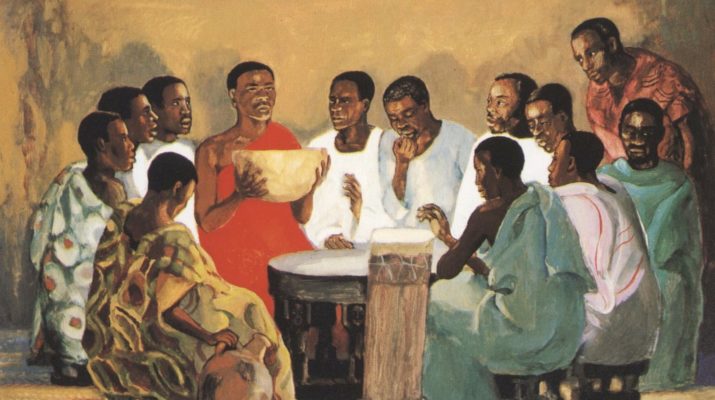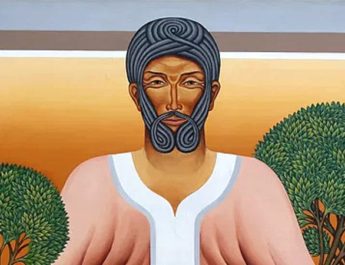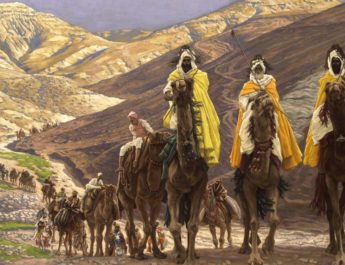John 14:15-21
Eastertide A25
15 “If you loveA me, you will keepB my commandments.C
16 And I will askD the Father, and he will give you anotherE Advocate,F to be with you forever.G
17 This is the SpiritH of truth,I whom the worldJ cannot receive, because it neither seesK him nor knowsL him. You know him, because he abidesM with you, and he will be in you.
18 “I will not leaveN you orphaned;O I am coming to you. 19 In a little while the world will no longer see me, but you will see me; because I live, you also will live. 20 On that day you will know that I am in my Father, and you in me, and I in you. 21 They who have my commandments and keep them are those who love me; and those who love me will be loved by my Father, and I will love them and revealP myself to them.”
Image credit: “The Lord’s Supper” by the Jesus MAFA project from Cameroon.




